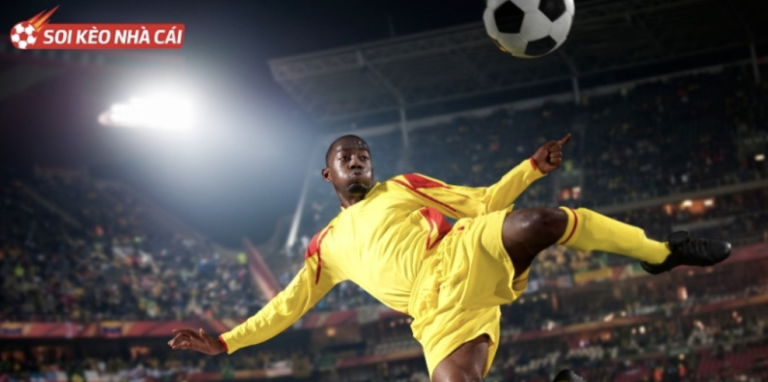The Origin of Manchester United’s Name and Identity

The origin of Manchester United’s name is a subject that intertwines football history, cultural identity, and resilience. While the club’s sporting success has captured global attention, the story of its name provides the foundation for that success. From Newton Heath’s humble beginnings to Manchester United’s worldwide fame, the evolution of identity reveals how names carry meaning beyond the game itself.
Understanding why “Manchester United” emerged requires a step back into the challenges faced by Newton Heath. Without grasping the struggles of the old identity, it is impossible to appreciate the significance of the new one.
From Newton Heath to a New Identity
Newton Heath LYR Football Club, founded in 1878, was born from the Lancashire and Yorkshire Railway workers’ desire to form a team. The name reflected both the geographical area—Newton Heath—and its industrial ties with the railway company. For nearly two decades, the club played under this banner, representing local pride and working-class determination.
But the name Newton Heath eventually became tied to instability and financial difficulty. Supporters associated it not with glory, but with struggle. This set the stage for a transformation that would redefine the club’s legacy.
The Symbolism of “Newton Heath”
The name “Newton Heath” carried layers of meaning. It signified a community rooted in industrial Manchester, where railway workers sought solidarity beyond the workshop. The “Heath” element underscored the geographical location, while “LYR” explicitly acknowledged the employer that supported the early team.
Sequentially, the symbolism grew problematic. The club’s association with financial woes overshadowed its proud railway heritage. The very name that once symbolized unity and local resilience became a reminder of decline. This tension made a rebrand not just necessary but inevitable.
Financial Crisis and the Need for Change
By the turn of the 20th century, Newton Heath faced overwhelming debt. The club reportedly owed more than £2,500—a crippling amount in early football economics. Attendance failed to cover costs, creditors threatened closure, and liquidation loomed as the likely outcome.
Statistics from this period show dwindling crowds compared with rivals, highlighting the urgent need for financial intervention. The name “Newton Heath” became synonymous with failure, and supporters recognized that survival required not only financial support but also a new identity to break free from its tarnished past.
John Henry Davies and the Birth of a New Name
Salvation came in 1902 through John Henry Davies, a wealthy local brewery owner. He invested £500 to stabilize the club’s finances and, in return, influenced its restructuring. Davies is remembered as the man who prevented extinction and gave the club a second life.
His significance lies not only in clearing debts but also in insisting on change. A new name was essential to signal a new chapter. Davies’s role was therefore both practical and symbolic: he provided money for survival and vision for rebirth. Without him, the “Manchester United” identity would never have materialized.
Why “Manchester United” Was Chosen
The choice of the name “Manchester United” in 1902 was deliberate and meaningful. “Manchester” broadened the club’s appeal beyond Newton Heath, allowing it to represent the entire city. The word “United” carried resonance in English football, symbolizing togetherness and inclusivity.
The semantic closeness of “Manchester” and “United” projected strength and ambition. It suggested a club not limited by geography or employer but defined by a collective spirit. This shift in naming transformed perception: what had once been a struggling railway team now became a club aspiring to unite an entire city.
Alternatives Considered Before the Final Choice
Before settling on “Manchester United,” other names were considered. Historical records suggest options such as “Manchester Central” and “Manchester Celtic” were briefly discussed. These alternatives reveal the club’s desire to balance local recognition with broader branding.
Ultimately, “Manchester United” prevailed because it captured both identity and aspiration. “Central” risked sounding administrative, while “Celtic” was too closely tied to Glasgow Celtic, potentially confusing. “United” offered originality, universality, and cultural weight, making it the clear winner.
The Early Years Under the New Name
The adoption of the name “Manchester United” quickly paid dividends. Within six years, the club won its first league title in 1908. The new identity coincided with greater organization, stronger leadership, and increased credibility.
The success validated the rebranding effort. Fans embraced the fresh name, and opponents recognized Manchester United as a rising force. This alignment between name and performance reinforced the wisdom of the transformation: the old struggles of Newton Heath gave way to the victories of Manchester United.
The Role of Old Trafford in Cementing the Identity
A name alone cannot secure permanence; it must be anchored in physical and cultural symbols. In 1910, the opening of Old Trafford provided Manchester United with a home worthy of its aspirations. Compared with rival stadiums, Old Trafford stood out for its scale and ambition, seating 80,000 spectators at the time.
The stadium gave Manchester United a recognizable base that matched the strength of its name. While other clubs played in modest grounds, United’s home reflected permanence and vision, cementing its identity in both football and cultural landscapes.
Old Trafford as a Symbol of Permanence
Old Trafford soon became synonymous with Manchester United. Its capacity, design, and atmosphere embodied the ambition reflected in the club’s name. Fans who entered Old Trafford were not only attending a football match—they were participating in a cultural experience.
The stadium and the name reinforced each other: “Manchester United” projected unity, while Old Trafford provided a physical space where that unity could be lived. Together, they gave the club permanence, credibility, and unmatched cultural influence.
Cultural Significance of the Name Manchester United
The name “Manchester United” extends far beyond football matches. For the people of Manchester, it symbolizes resilience, unity, and pride. For fans worldwide, it conveys tradition, history, and excellence.
Names carry meaning, and in this case, “United” transcends sport. It signifies collective identity, linking supporters across social and cultural divides. This cultural significance explains why the name resonates not only in Manchester but also across nations where the club has millions of followers.
Manchester United’s Name in Global Football Culture
Over the decades, Manchester United’s name has become a global brand. From Asia to the Americas, the words “Manchester United” are instantly recognizable, standing as a symbol of football heritage. The name bridges generations and geographies, creating a shared identity among fans.
In the modern era, engagement with Manchester United’s identity extends into digital platforms and football entertainment communities. Fans follow narratives, watch live matches, and explore historical stories through channels such as ufa168, where global football culture thrives. This demonstrates how the name continues to inspire engagement beyond the stadium.
Legacy of the Name and Its Timeless Influence
The origin of Manchester United’s name is a story of transformation: from Newton Heath’s railway struggles to a rebranded identity that symbolizes global ambition. The name “Manchester United” has endured because it reflects unity, permanence, and cultural strength.
Today, the legacy continues. Supporters not only celebrate the club’s history but also engage with broader football culture through platforms like ufabet, where tradition meets modern fandom.
In summation, the origin of Manchester United’s name shows that identity matters as much as performance. By choosing a name that projected unity and ambition, the club set itself on a path to becoming more than a football team—it became a timeless cultural institution.






